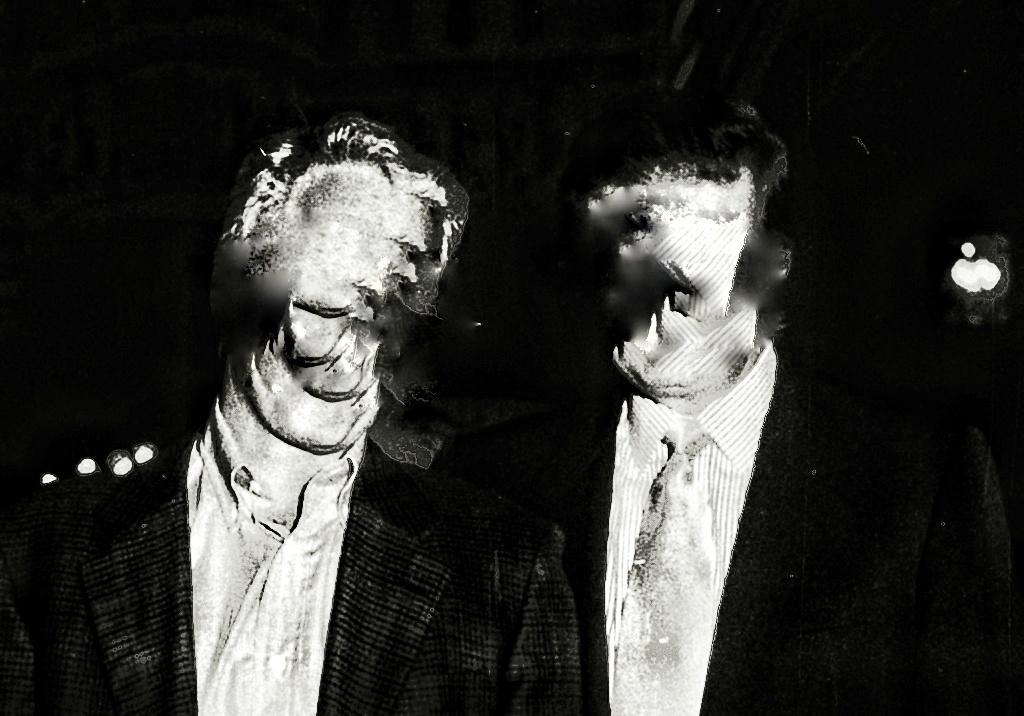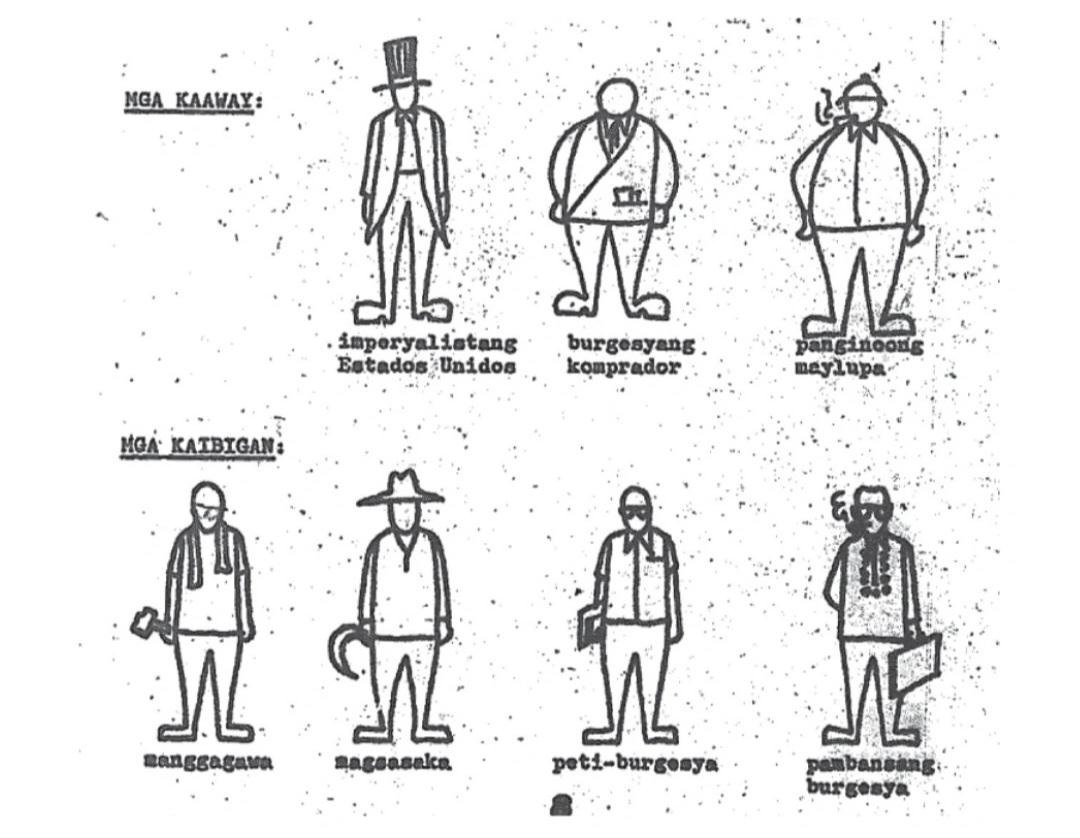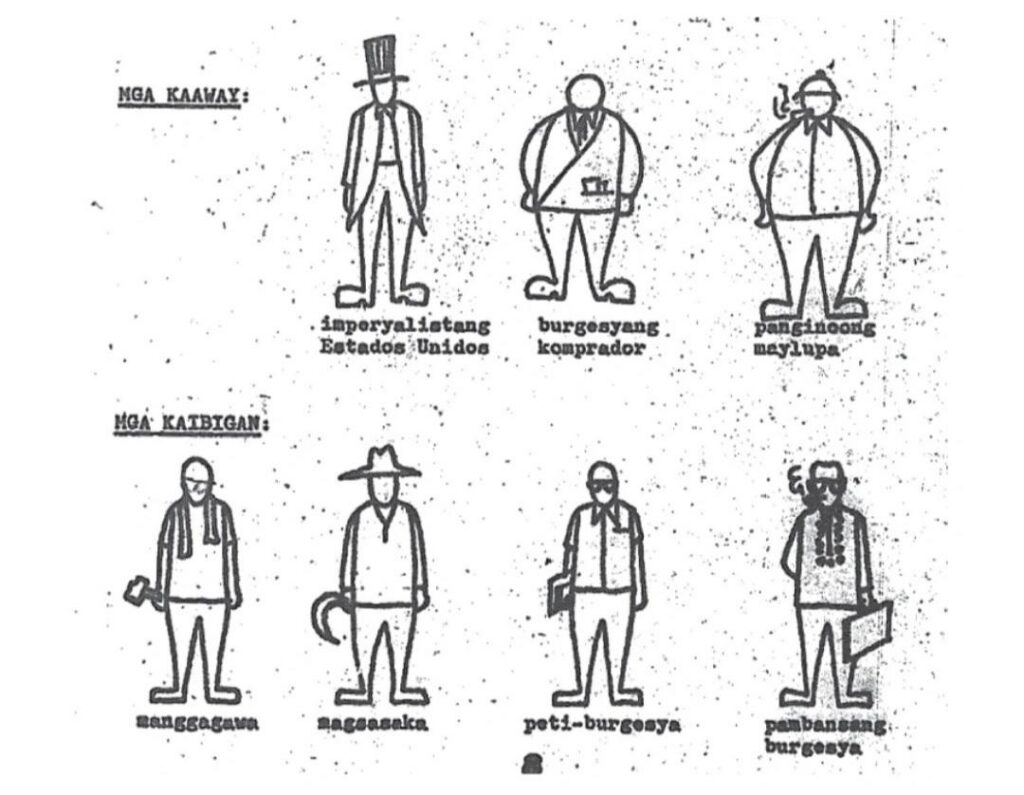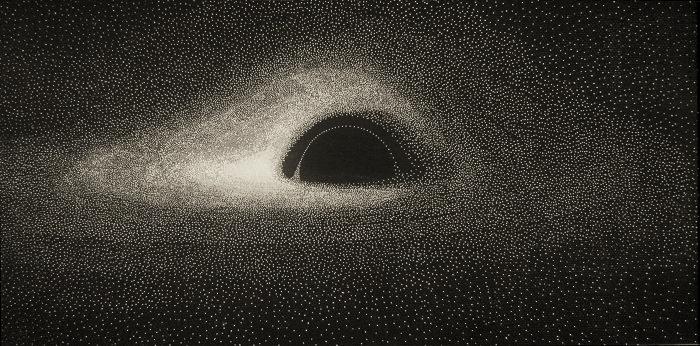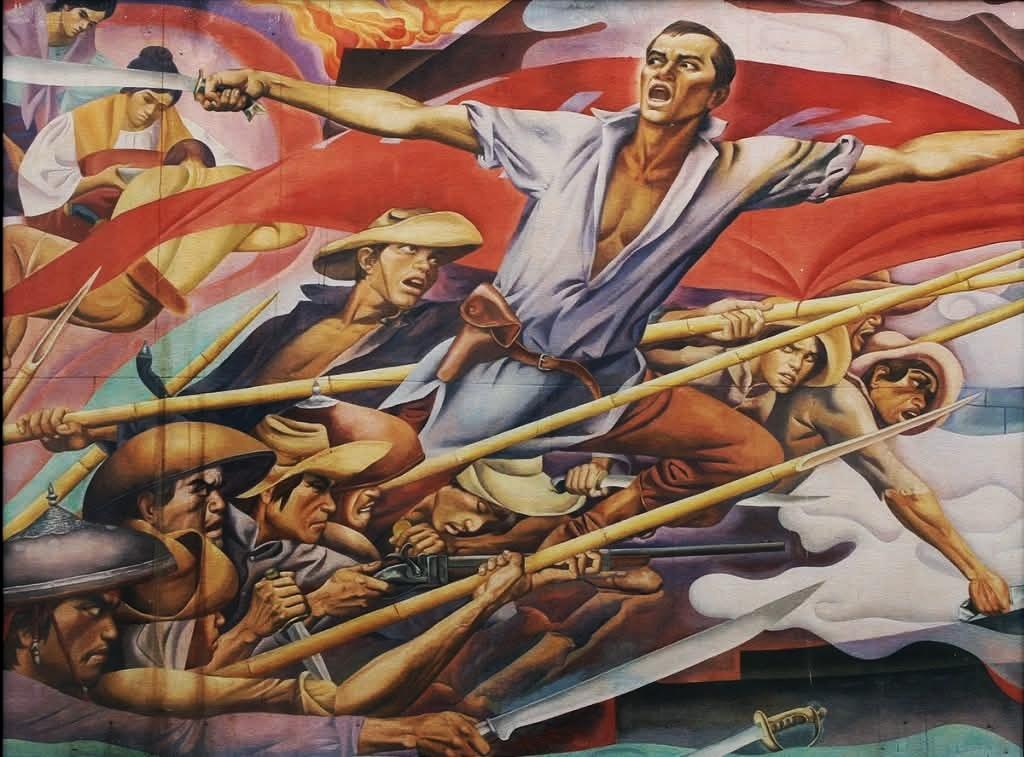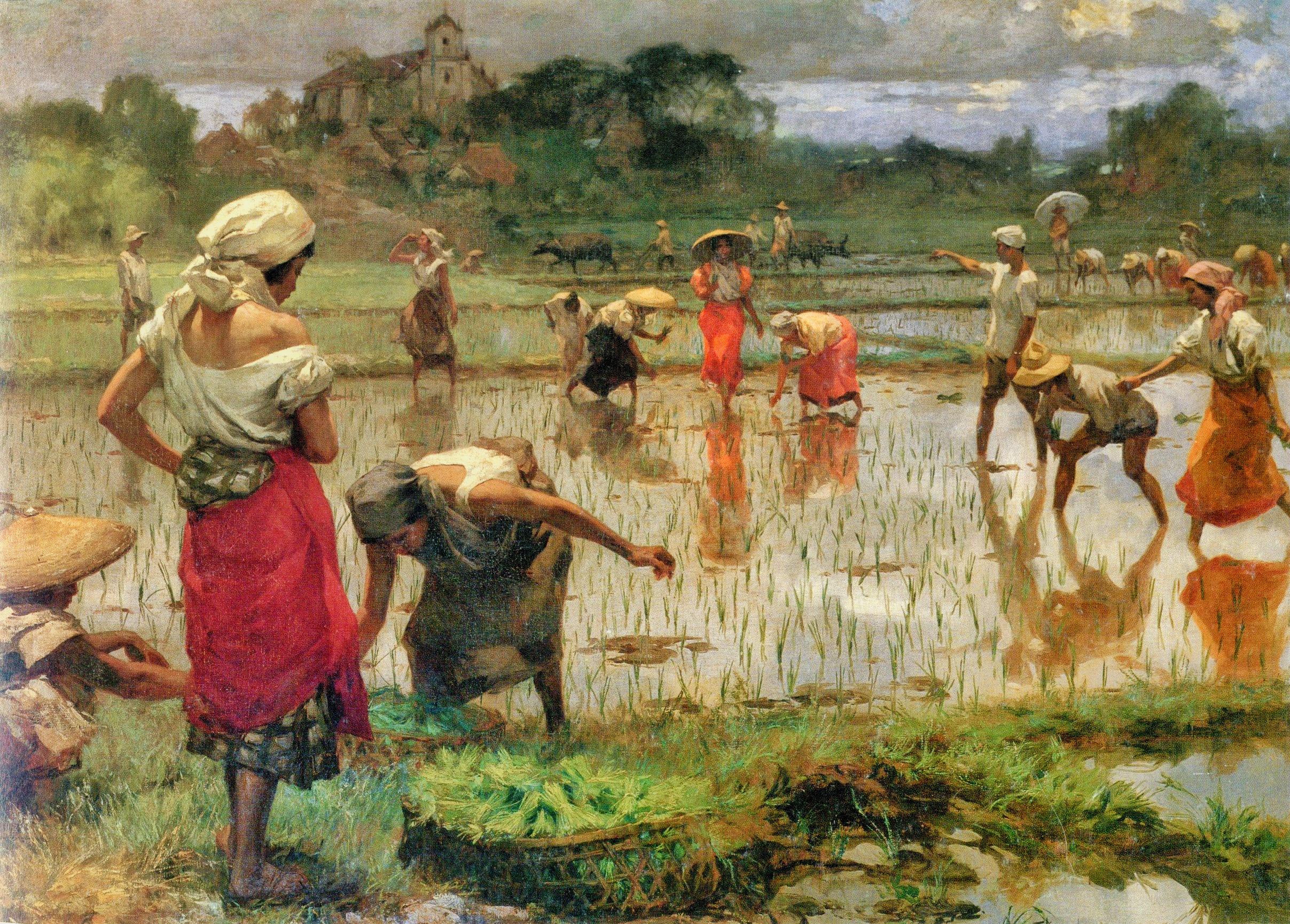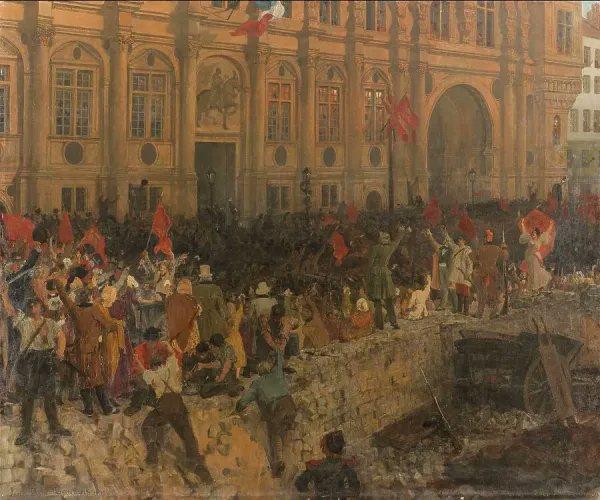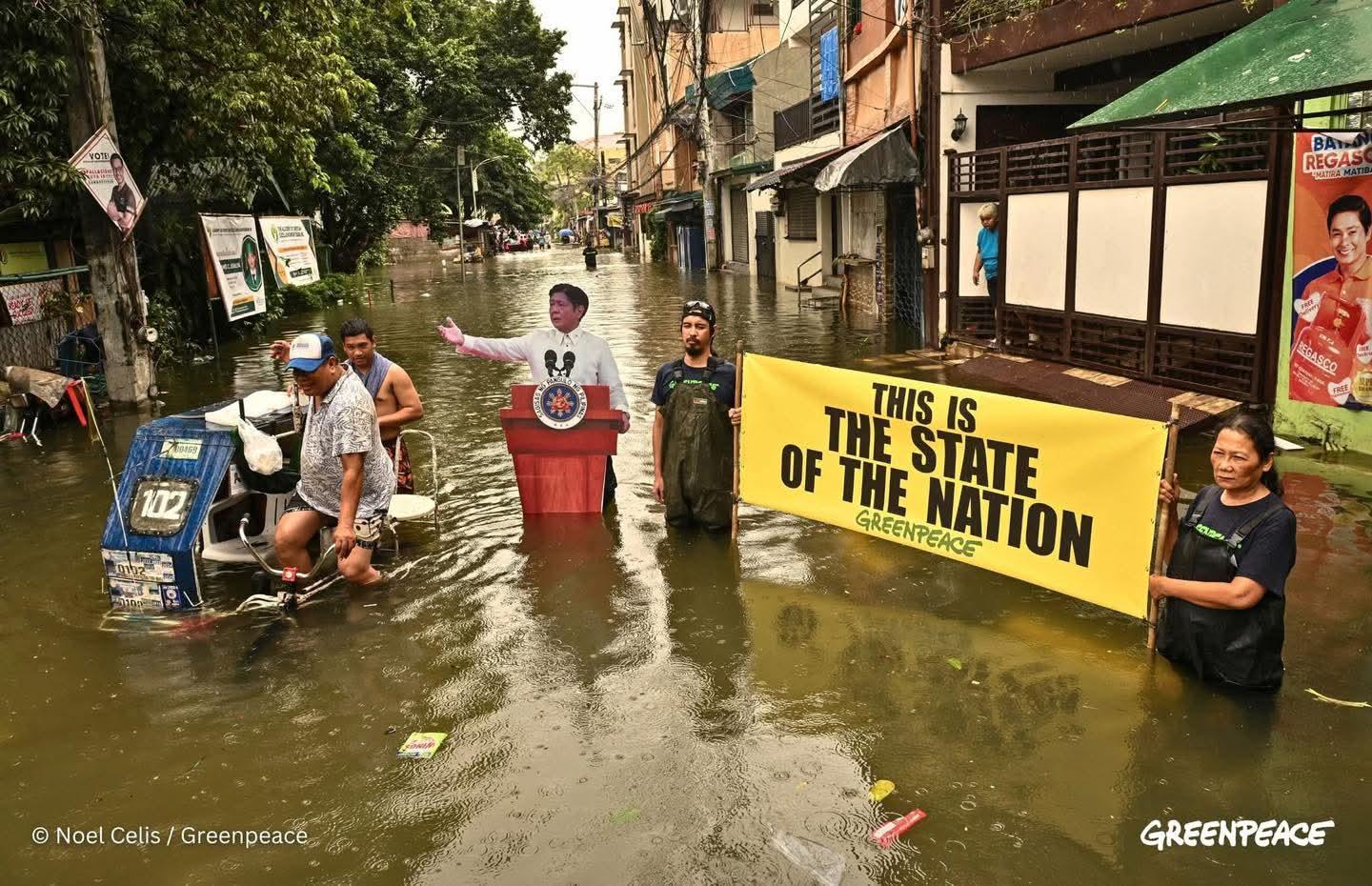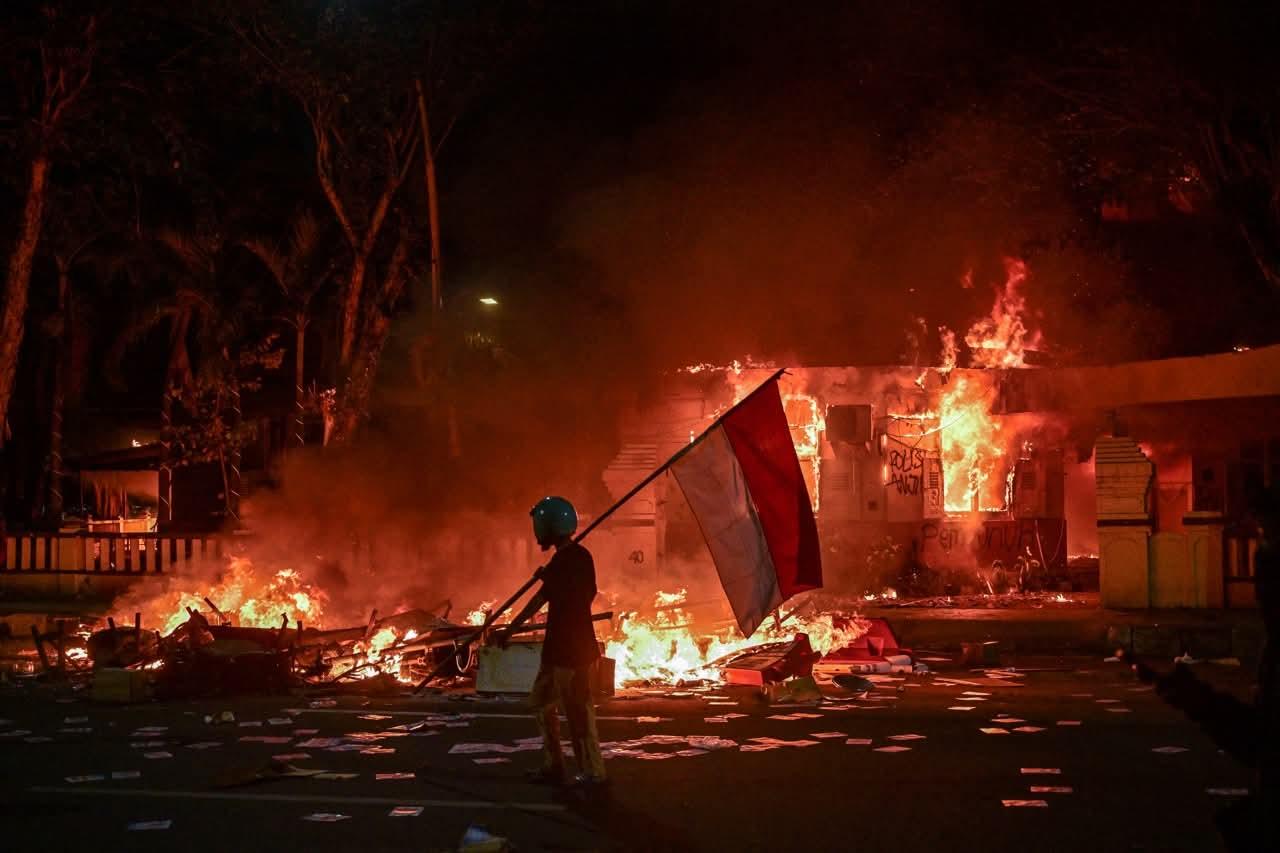Vulgar economy actually does no more than interpret, systematise and defend in doctrinaire fashion the conceptions of the agents of bourgeois production who are entrapped in bourgeois production relations. It should not astonish us, then, that vulgar economy feels particularly at home in the estranged outward appearances of economic relations in which these prima facie absurd and perfect contradictions appear and that these relations seem the more self-evident the more their internal relationships are concealed from it, although they are understandable to the popular mind […]
Karl Marx, Capital Vol. 3
A conceptual impossibility
The notion of “semi-feudalism”, ubiquitous in Maoist, National Democratic, and Third-Worldist discourses, stands as one of the most significant conceptual residues of a non-Marxian framework that has been repeatedly reproduced under the pretense of revolutionary legitimacy. The theory offers an intuitively plausible description of pre-capitalist social formations characterized by agrarian backwardness, limited industrialization, and the persistence of landlordism, usury, tribute-making, menial service, all in effect of foreign imperialist impingement onto a domestically feudal social base. But a genuinely Marxist analysis shows that such appearances fail to carry the ontological weight assigned to them. This categorical error survives by evading the methodological rigor of the Marxist critique of political economy bound up with a materialist conception of history. Once we understand Marx’s determinate abstraction, the value-form, dominant determinations, and the analytical breadth required at the level of capitalism as a global totality whose abstract forms shape concrete realities, the theoretical and political plausibility of the semi-feudal thesis collapses.
Its persistence is best explained not by its explanatory power, fundamentally erroneous and deceptive in its intuitive encasing, but by the fact that it is underwritten by uninterrogated assumptions baked into Stalinism, which Maoism in part inherits, that the critical Marxist method rejects with finality: empiricism under the pretense of dialectics, developmentalist teleology born of historical materialism’s vulgarization, and a national-economic imaginary as an analysis of world-capitalist totality in the epoch of imperialism. The “semi-feudal” category persists, principally, because it solves a political problem by allowing the Maoist party to claim that communism is premature, reduced to a “perspective”, that proletarian intervention is not yet possible, and that alliances with non-proletarian classes, granted that they are consciously patriotic,—most notable is the national bourgeoisie—are strategically necessary. The theory prevents the proletariat from asserting its independent historical role by displacing the communist horizon into an indeterminate future. To critique semi-feudalism therefore means to critique the praxeological foundations that stabilize it within Maoist theory, and index its political implications with the goal of affirming proletarian independence.
Historically, theorists have defined semi-feudalism in two main ways. Mao characterized the concept in a negative light, as a failure of capitalism to cohere vis-á-vis ancient feudal modes; Sison on the other hand, formulizing in a positive light, as an internally coherent structure of socio-political-economic domination produced by imperialism itself. In both definitions the survivals of feudalism are posited to be signs of the incompleteness of capitalism or the pre-capitalist character of social production.
Mao, in The Chinese Revolution and The Chinese Communist Party (1939), described the semi-feudal condition as
(1) The foundations of the self-sufficient natural economy of feudal times have been destroyed, but the exploitation of the peasantry by the landlord class, which is the basis of the system of feudal exploitation, not only remains intact but, linked as it is with exploitation by comprador and usurer capital, clearly dominates China’s social and economic life.
(2) National capitalism has developed to a certain extent and has played a considerable part in China’s political and cultural life but it has not become the principal pattern in China’s social economy, it is flabby and is mostly associated with foreign imperialism and domestic feudalism in varying degrees.
Notable is Jose Maria Sison’s development and usage of the term over the decades since the publication of Philippine Society and Revolution (PSR) in 1971, which have drifted from an originally negative definition—a flat-out rejection of the fully capitalist nature of Philippine social production—to an increasingly positive definition vis-á-vis imperialism as late as 2020–2021, almost mirroring Filemon Lagman’s counter-analysis of a “mongrel capitalism” in 1994; from pre-capitalism to an abnormal type of capitalism (“comprador-capitalism”), while insisting that no qualitative changes have taken place to definitively conclude that the Philippines is fully capitalist. Ultraleft groups like Chuang in China, in ‘Sorghum and Steel’, assert that Chinese semi-feudalism as Mao had formulated it was not a failure of capitalism to cohere but a differentiated logic of capitalism in China emerging through markedly uneven market-driven transformations of the Qing and Republican countryside.
Sison’s characterization of the semi-feudal condition began as such:
The semifeudal character of Philippine society is principally determined by the impingement of U.S. monopoly capitalism on the old feudal mode of production and the subordination of the latter to the former. The concrete result of the intertwining of foreign monopoly capitalism and domestic feudalism is the erosion and dissolution of a natural economy of self-sufficiency in favor of a commodity economy. Being dictated by foreign monopoly capitalism, this commodity economy is used to restrict the growth of a national capitalism and force owner-cultivators and handicraftsmen into bankruptcy. It is used to keep large masses of people in feudal bondage and at the same time create a relative surplus of population, a huge reserve army of labor, that keeps the local labor market cheap. In Philippine agriculture, the old feudal mode of production persists side by side with capitalist farming chiefly for the production of a few export crops needed by the United States and other capitalist countries.
Amado Guerrero, Philippine Society and Revolution (1971).
Which, five decades later, shifted to something like…
…[Semi-feudalism] is used to describe economies that have long been dominated by the commodity system of production and no longer by a natural economy of feudalism. But it is a merchant bourgeoisie rather than an industrial bourgeoisie that is the chief ruling class based on land ownership or in partnership with the landlord class. Semifeudalism is a precise term with a definite content. It is a big comprador type of capitalism that is based on feudal and semifeudal conditions and thrives on a lopsided colonial exchange of raw material exports and manufacture imports. It is a term for a nonindustrial or pre-industrial and agrarian economy in which the comprador big bourgeoisie has arisen as the wealthiest and most powerful exploiting class from feudal haciendas as resource base for exports and in combination with the landlord class.
Jose Maria Sison, ‘On the Current Character of Philippine Society’ (2020).
Needless to say, Uncle Joma seems to reserve the categorization of capitalism singularly to its industrial form, what we might call the “classical” (i.e., 19th-century English) industrial-capitalism. This distinction is also espoused by most National Democrats. “How can we be capitalist? We don’t have the industrial base to make our own shit!” But he is also frustratingly inconsistent at this, seeming to have realized later on that the commodity economy characterization he specifies in PSR, while steadfast in turning down the use of this scientific Marxist term, is plainly and simply capitalism. Uncle Joma pivots—actually, sure, we are already capitalist! Of course we are. But not capitalist enough; our chief exploiting bourgeoisie is the evil kind of bourgeoisie, the comprador-landlord bourgeoisie who has sold his Filipino soul and liberty—along with it our liberty as a People—to the foreign imperialists; what we want, instead, is a patriotic, revolutionary, progressive, industrial bourgeoisie! With his patriotic, revolutionary, progressive, industrial capital—a capital which serves the people!
We will not, of course, go paragraph-for-paragraph with the late Uncle Joma (peace be upon him). Old Lagman has written a practically satisfactory—not without Marxist criticism of his “mongrel-capitalist” economy—response over thirty years earlier. We might say that he has been the vindicated political-economy Marxist all along if Uncle Joma’s webinars and interviews in 2020–2021 are anything to go off of. In any case…
The object of this essay is the persisting notion of vestigial “feudal relations” which characterize the Philippine social formation as semi-feudal or “domestically feudal”, the implication that it is a pre-capitalist formation by the integral theory of stages embedded in Maoist, specifically National Democratic, theory, and the symptomatic categorical flexibility of Sison’s semi-feudal thesis to suit modern conditions and justify a pre-conceived program of peasant-led bourgeois-democratic revolutionism.
Superfluity of appearances
But all science would be superfluous if the outward appearance and the essence of things directly coincided.
Karl Marx, Capital Vol. 3
The first and most decisive point in Marx’s method is that the object of critique cannot be grasped from immediate empirical appearances. This principle, elaborated in the Grundrisse, establishes the entire methodological foundation for Capital. The empirical world appears as a chaotic multiplicity of social phenomena (“an immense accumulation of commodities”), with its differing labor forms, juridical arrangements, technical forces, market institutions, property relations, and class figures. Yet it would be absurd to anyone who has read their basics if one were to assert that these constitute the essential determination of capitalism. The essential determinations—value, abstract labor, the commodity-form, capital as self-expanding value, private property, law of equivalent exchange—are not empirical entities observable as discrete objects in the topology of society, but abstract social relations that manifest themselves only through mediations.
Marx begins with the commodity because, in the first instance, it is the most common object encountered in empirical reality. We quickly realize on the other hand, and this is our real analytical starting point, that it is also the simplest expression of capitalist social mediation (determinate abstraction). For this reason, Marx insists that the method appropriate to critique is not induction from empirical facts but immanent critique, or “rising from the abstract to the concrete”. The concrete understood by thought is not the empirical multiplicity but the unity of determinations that generate and govern empirical forms. We must therefore “seek truth from facts”.
The category “semi-feudalism” is fundamentally premised on an empiricist epistemology, beginning from the appearances of tenancy, debt-bondage, landlord dominance, usury, and agrarian backwardness, and concludes that these appearances indicate the persistence of feudal relations. But if capitalism cannot be grasped from empirical appearances, then the inference from agrarian forms to a mode of production is, from the start, primed to be incoherent. Non-Marxian phenomenology is smuggled into the critical method of Marxism under the guise of “concrete analysis of concrete conditions”, whereas concrete analysis in Marx’s sense is an analysis of concrete abstractions, not empirical forms free from practical reflexivity. What determines the mode of production is not the empirical form in which labor is organized, subjugated, exploited, and its statistical-sociological preponderance, but the structural logic that subsumes these forms into a coherent social division of labor, or in a word, a mode of production. Capital’s dominance does not require homogeneous labor processes. It requires the dominance of value as the social mediation of labor, the commodity as “its elementary form”. It generalizes commodity production (for is commodity production, somehow, for some reason, not sufficiently generalized in the Philippines, where one of the critical sources of national income, overseas-workers themselves via remittances, are just as much a commodity export as cash-crops and semi-conductors?). Hence the persistence of share-cropping, tenancy, debt-peonage &c., tells us nothing about the mode of production of a society unless we understand the immanent logic governing those forms.
Value’s real abstraction
Feudalism, in the simple abstraction (for admittedly a rather crude convenience), is defined by the fundamental relation of natural self-sufficiency through personal dependence and small-scale production; capitalism on the other hand, by real abstraction as the mediating principle of social reproduction, gives way to a commodity economy ever-expanding its frontiers of exchange (e.g., markets). As Marx observes in Capital Vol. 1, capitalism is unique because the abstraction that is value exists as an objective, socially-real form that structures the reproduction of society. This “real abstraction” is in a word the social substance of capitalist society; it is abstract labor-time (homogeneous human labor; value as such) that functions as the substance of wealth in capitalism; producing for exchange-value becomes the determinant of production, instead of use-value, custom, obligation, or coercion, and annihilates all particularities of the concrete labor process and the resulting commodity-product. Feudalism, by contrast, is characterized by extra-economic coercion: the peasant is tied to the land and owes labor-rent or produce to the lord by juridical obligation. The essential relation at the microstructural scale between the tiller and the lord is personal dependence. A step above, capitalism dissolves personal dependence at the moment of exchange, substituting an impersonal dependence on the market by proxy of the landlord coercing serf-like/peasant labor for the explicit purpose of selling agricultural commodities in the market to pocket profit. Even if capitalist relations are superimposed on top of pre-existing social forms, only one logic can be dominant at a time. There cannot be two modes of production simultaneously governing the same social formation, as the dominant structural logic (capital’s “mute compulsion” to accumulate and thereby expand) reproduces pre-existing forms as its own relations, “creating a world in its image”.
This has direct consequences for the discussion of semi-feudal societies. If value as real abstraction is operative, if commodity production mediates social reproduction, if labor-power is bought and sold even intermittently, even in obscured terms, if agriculture, commercial or small-scale, is integrated into global markets, if rent is monetized via the end goal of profit, if the reproduction of labor-power is governed by wages, prices, and credit, then the dominant mode is definitively capitalism. The persistence of agrarian backwardness does not imply feudal dominance; rather it explicitly displays the unevenness of capitalist development, and highlights the diverse forms and rate of exploitation that is a precondition for capitalism as a world-system and the stabilization of its crisis tendency.
The theory of semi-feudalism presupposes that the essence of a mode of production is the empirical presence of its specific social forms (in the feudal case; tenancy, share-cropping, usury) rather than the structural logic of surplus extraction and capital accumulation. Marxist CoPE denies this possibility. The essence of feudalism, in the broadest possible historical sense, is not share-cropping but a natural self-sufficient economy of consumption based on personal dependence. Once personal dependence is dissolved as the primary mediation, feudalism has ceased to exist as a mode of production, regardless of how many empirical forms resemble older ones.
Dominant determinations
A mode of production is a coherent totality of social relations defined by the dominance of a particular structural logic which organizes and articulates all subordinate (e.g., pre-existing) relations into a social division of labor. In capitalism, the logic of capital as self-expanding value dominates, subsumes; all other relations are violently subordinated to this logic. Forms of rent, interest, profit, and especially labor-processes are determined by the law of value.
The direct implication of this is that the heterogenous coexistence of labor forms does not necessarily imply multiple modes of production, in fact their concrete forms are dissolved into the homogeneity of abstract labor-time. Capitalism has always incorporated diverse labor processes: slave labor in the Atlantic, serf-like labor in Eastern Europe, share-cropping in the US South, debt-bondage in South Asia, family labor in peasant households, and wage-labor in factories. These are all articulated and subsumed within a single mode of production. There is no hybrid “slave-capitalism” or “feudal capitalism” (glaring at you, Yanis Varoufakis); there is capitalism employing slave or semi-servile labor under its dominance at the level of global accumulation.
Banaji makes this point clear by demonstrating that the form of exploitation (expanded, “labor-regimes” or labor-systems) is not identical with the mode of production. The same exploitation-form may function within different modes depending on the overarching logic. If tenancy can be capitalist under certain conditions, then its presence cannot indicate feudalism. The semi-feudal thesis collapses because it misidentifies empirical forms as structural determinants.
Yet within the limits of such control, continually re-established on the basis of various coercive forms of exploitation, the relations of production which tie the enterprise of small commodity producers to capital are already relations of capitalist production. Between the market and the small producer, capital intervenes with the determinate forms and specific functions of both merchant and industrial capital (as in the slave plantations two radically distinct “determinate forms” merge). In this process two enterprises are thus present, a quasi-mercantile capitalist enterprise, which figures solely as a unit of production (as defined earlier) without the labour-process specific to its mode of production; and an enterprise of formally independent small producers functioning according to its own labour-process, inherited from the conditions of a patriarchal economy, and according to its own economic conceptions, also patriarchal in their determination, but no longer as a totally independent unit of production. The social process of production incorporating the immediate labour-process of the small peasant enterprise is governed by the aims of capitalist production; namely, by the compulsion to produce surplus-value. Within this social process of production dominated by the capitalist enterprise, the economic conceptions of the small households, and their formal possession of a portion of the means of subsistence, enter as regulating elements only as a function of the law of surplus-value production.
Jairus Banaji, ‘Modes of Production in a Materialist Conception of History’ (1977).
Maoist theory has no concept of dominance (or, more aptly, it employs an inverted one); it treats every empirical form, reduced to simple categories, as opposed to historically-specific determinate categories, as an indicator of a separate logic. Case in point are Guerrero’s (Sison’s) three basic problems of Philippine society: bureaucrat-capitalism is distinct from imperialism is distinct from domestic feudalism—all distinct from capitalism-proper, which it also simplifies as properly and specifically national industrial-capitalism. In a Marxist framework this is rendered absurd. Only one logic can be dominant and all forms—no matter how archaic—are subordinated to it. To wit, if commodity production and the law of value govern social reproduction, no matter the level of general industrial technique, the mode of production is capitalist. The underlying logic which props up the three problems of Philippine society is indisputably, undeniably, capitalist logic.
Maoism inverts the theory of dominant determinations derived from the subsumptive processes of capital: the theory of “primary contradictions”. What determines the primary contradiction in each particular landscape is the immediate political situation of the masses and the situation’s pragmatic demands. Imperialism—understood as foreign policy—tends to be identified as this primary determinant contradiction at the intersection of “semi-colonialism” and “semi-feudalism”. As such, the three basic problems are interconnected in some vague inarticulated way which lends itself to a united front theory on the bedrock of nationalism (or patriotism, if you like).
Maoist realpolitik’s positivist regression
Underlying the Maoist thesis of semi-feudalism is a deeper epistemological deviation: a rejection of the distinction between essence and appearance and a slide into the empiricism of a mechanical, “cosmological” positivist dialectic. Mao’s epistemological essays, particularly ‘On Practice’ and ‘On Contradiction’, implicitly reject the notion that systematic theory must pierce beneath empirical appearances to uncover underlying determinations. “Social practice”, that is, immediate literal practice at the individual level, is privileged over theory, failing to grasp how theory and practice are mutually reflexive and operate at the level of social totality, that is, at the level of class struggle, budding at the point of production (which is what for Marx constitutes “social practice”). Instead, thoroughly uncritical of the validity of its own categories, Mao argues that the masses’ direct experience forms the basis of unmediated knowledge and contradictions manifest directly in phenomena.
‘On Practice’ presents a three-part argument: (1) knowledge originates in the material world through sense-experience; (2) sense-experience requires transformation into theory via cycles of practice-reflection-practice; and (3) the validity of knowledge lies in its utility in practice. Two moments are essential. First, Mao rejects purely abstract cognition, i.e., theoretical formulations detached from empirical verification are sterile. Second, Mao elevates popular practice (the masses’ experience) as the fundamental source of knowledge. He argues that “the masses” produce correct ideas through struggle and everyday production. The party’s role is thus to “summarize” and generalize mass experience into lines and policies that can be applied more widely.
The method is, therefore, inductive and pragmatic: empirical practice yields inductive generalizations that are tested through further practice, which equates practical political utility to truth. This is nothing short of positivism which the Marxist method definitively rejects. The danger of this inversion is twofold. First, it risks the fallacy of assuming that empirical appearances transparently indicate the underlying determinations; second, by privileging practice as both source and measure of truth, Mao collapses theoretical mediation into application, thereby undercutting the role of theory in critiquing the very historical conditions that constitute social practice and consciousness which perceives that practice itself.
Whereas positivism abstracts by isolating variables [e.g., feudal forms of exploitation] and controlling for confounders [e.g., U.S. imperialism] to infer causal effects under ceteris-paribus assumptions betting on the explanatory power/reliability of said isolated variables, Marx’s determinate abstraction is an analytic instrument that seeks the minimum number of historically specific determinations required to reconstruct a given phenomenon. Abstraction is hence a reconstruction of the social essence of formal categories (e.g., the commodity as use-value and exchange-value). As such, positivist causal inference is local and contingent on (quasi-)experimental assumptions whereas Marxist causal analysis is relational and structural.
Heisse, ‘Is Marxism a “Science”?’ (2025).
This worldview which privileges voluntarism and political pragmatism traces a direct path to stagist-developmentalism, a formal modelling compulsion of positivism. If empirical backwardness is interpreted as evidence of a feudal mode, and if feudalism must be negated to develop the productive forces before socialism, then the revolutionary strategy logically becomes two-stage: bourgeois revolution first, socialist revolution later.
The Marxist method insists that appearances often invert essence, social forms mask and distort their underlying determinations, and even archaic-seeming relations may be products of capitalist articulation.
Maoist epistemology is thus fundamentally anti-theoretical. It collapses the difference between empirical immediacy and conceptual mediation and eradicates the particularity of material reality’s non-identity into manageable sets of polar (primary/secondary, antagonistic/non-antagonistic, internal/external) contradictions subject to political consciousness and voluntarist manipulation (e.g., rectification, criticism–self-criticism). For Marx, knowledge is achieved not by accumulating empirical data—which treats matter as external fact and the individual as objective, neutral observer of already-existing facts—but by reconstructing the abstract determinations that generate concrete reality in its historicity. For Mao, knowledge is achieved by the “dialectical” interpretation of immediate contradictions as demanded by the political situation. These two methodologies are fundamentally incompatible; only the first can sustain a critique of political economy.
The methodological error of Maoist positivism therefore directly produces the conceptual error of semi-feudalism.
Revolutionary classes?
What follows herein is an extended discussion on the structural determinations of the toiling classes, workers and peasants.
Definitions in order
In brief, a class in the Marxist sense is a relational position within the total (social, political, economic) ensemble of social relations that constitute a mode of production. The proletariat is that class of wage-laborers whose labor-power is commodified and whose reproduction depends on the sale of labor-power; capitalists are owners of private property, value’s self-expanding form; petty-proprietors occupy intermediate structural determinations and vascillating political positions.
“Revolutionary” when applied to a class does not mean that the class is filled with radicals or with good guys with a positive vision of changing the world, that much is obvious to us; it means that the class occupies an objective structural position such that its collective action can, in principle, abolish the social relations that define the comprehensive social totality in which it is embedded. From a determinate standpoint specific to the level of capitalism as a world operation, a revolutionary class must have at least the following properties: (i) direct structural connection to the valorization of capital; (ii) concentration or organizational potential to effect collective interruption or appropriation of production; (iii) socialized knowledge and capacity to manage complex socialized production; and (iv) an objective interest in abolishing the value-form (not merely “chopping up the land”, i.e., surplus redistribution and management under the same relations).
The proletariat as an international class is unique in capitalist society in this regard because it meets all four criteria. To sum, it is negatively structurally bound to the logic of capital through its commodity labor-power and objective dispossession.
The question for us: does the peasantry as presently constituted under global capitalism instantiate these properties in a manner comparable to the proletariat? In a word, is the peasantry a revolutionary class?
The structural logic of capitalist reproduction
Why does capitalism reproduce itself? Marx analyzed that the abstract value-form organizes social life: labor is socially measured and homogenized in time calculation and surplus-value is appropriated by capital. The immediate source of surplus-value is living labor that produces exchange-values. The social power to produce and withhold socially necessary labor-time which immediately halts the valorization process gives the proletariat a privileged position at the heart of social production. Importantly, modern productive processes are highly socialized at an unprecedented level: production is organized through collective interdependent activities which actively implicate the entire globe in assembling a single commodity.
Capital diffuses production spatially and temporally, segmenting labor, outsourcing, and internationalizing supply chains. The world-market is the machinery through which local labor is integrated into global processes of valuation and realization, where the concrete particularities of human activity collapses into the common measure of value in abstract labor-time. Only in the moment of exchange, facilitated by the market, does socialized labor, privatized by the enterprise structure and form of appropriation, actually become really social in interacting with other socialized labors in the form of commodities. The socialization of capitalist production elevates the working class’s structural position (and defines its very negative power): workers are not isolated producers but enmeshed gears in a complex, interdependent system of capital valorization where the collective withholding of labor-power directly and immediately fractures accumulation. It is an active bane to capital which must always find ways to discipline and rid itself of, as much as is existentially possible for it, in crises, restructurations, and technique.
The peasant as a capitalist subject
The integration of the peasantry into capitalism cannot be understood through national narratives of “transition”, “development”, or “backwardness”. Primitive accumulation is not a European pre-history followed by generalized global replication enclosed within coherent national spaces. Marx’s analysis in Capital concerns the genesis of capitalism in England but anticipates the logic of primitive accumulation extending as a continuous world-historical process. Its aim is not the annihilation of pre-capitalist forms per se, as the teleological register (see Banaji re typological fallacy) of the semi-feudal thesis implies, but the production of commodified labor-power, the creation of market dependence, and the establishment of value as the regulative principle of reproduction.
Peasant labor historically entered capitalism through formal subsumption. Formerly autonomous and/or household-based labor-processes are monetized and oriented toward market exchange without immediately transforming the internal labor-process or revolutionizing technique. As such, peasants sell outputs and seasonally sell labor but often retain household-based reproduction methods. Formal subsumption suffices for capitalist social relations to operate and dominate in the peripheries: commodities produced by peasants enter value-chains; the peasant is subject to market prices; credit and tenancy tie reproduction to market dependence. Colonization, unequal exchange, and externally imposed monetary regimes transformed local agrarian and tributary structures into differentiated reservoirs of cheap labor and near-unlimited raw materials. Yet because the technical and organizational transformation of the labor-process (real subsumption) is often incomplete, especially in under-industrial countries such as the Philippines where sluggish industrial development, in the absence of national industrial policy, is remarkably ineffective at absorbing the migrating, landless peasants to the cities as full wage-laborers, peasants frequently remain semi-proletarian: they oscillate between market-dependence and household subsistence, hovering within what I often call the “liminality of proletarianization.”
In the peripheries, primitive accumulation is non-linear and non-totalizing precisely because the world-market already exists as a structured hierarchical space prior to “imperialist impingement”. In this way, whereas it followed a genealogical development from feudalism formally unleashed by bourgeois revolutions in continental Europe (and specific only to Europe!), capitalism is revealed to be a fundamental rupture from all previous modes of social existence at the world-systemic scale. Albeit muddy, ill-defined, and conceptually dubious, as by now is hopefully made apparent, the semi-feudal thesis is one way of naming this world-historic rupture. Primitive accumulation in the peripheries takes the form of perpetually-arrested proletarianization, or uneven de-peasantization: destruction of communal land, imposition of rent and tax regimes, integration into cash-cropping systems, and the commodification of subsistence. This destruction remains virtually perpetually incomplete because capital accumulation at the world-scale demands the persistence of cheaper-and-cheaper social reproductive means (in the peasant case, household-based) to subsidize the global wage rate.
What becomes readily evident is how the liminality of proletarianization is not a defect but a stabilizing lever baked into the mechanisms of global capital accumulation in the peripheries: capital benefits from retaining elements of peasant household reproduction because they subsidize production costs (food at subsistence prices reduces required wages), provide flexible labor supply (seasonal migration yields casual labor) which inadvertently transforms them into competitors as sellers of labor-power, and supply cheap inputs (agricultural commodities sold at depressed prices). At the level of global accumulation, the peasantry functions as a peripheral differentiation of the global labor-reserve. Due to differential wages and bargaining power, peripherally produced commodities embody labor that is not fully compensated relative to metropolitan prices; the core extracts surplus through monopsonistic pricing, differences in productivity, and power over trade terms (unequal exchange). The peasant’s existence as a source of cheap labor and inputs, therefore, increases the global rate of profit and puts downward pressure on global wages. In short, capitalism keeps peasants partially market-dependent as this liminality position is sufficiently functional and dynamic for the diktat of accumulation.
The peasant’s role as reservoir is external to the centrality of socialized production where surplus-value is collectively produced in concentrated workplaces. Unlike factory workers, small peasants typically lack the capacity to stop the socialized reproduction of value in a direct, immediate, and comprehensive manner. Peasant strikes can create crisis points (e.g., food shortages, raw material scarcities) but capital has historically developed compensatory mechanisms (stockpiles, geographic/technological substitution, financial hedging) precisely because peripheral agricultural supply is voluminous but dispersed.
A rural proletariat?
Structural analysis asks: which determination explains the reproduction of the whole? In the capitalist mode of production, the logic of value and the imperative of accumulation is the whole point. The class that occupies the analytic point where this determination operates is structurally privileged as a potentially revolutionary class. The proletariat, as the class that sells labor-power and thereby produces surplus-value situated in the globally socialized conditions of modern production, singularly occupies that point. Its collective refusal to produce halts the very process of valorization. Moreover, because production is socialized, the labor process is a public, organized social endeavor, albeit obscured by the private form of appropriation and enterprise; the working class’s spatial-physical concentration and social practice makes coordination and expropriation an always-already latent negative class power.The peasant’s withdrawal is not equivalent in effect because it operates on inputs, on peripheral supply, and on the social reproduction of labor-power indirectly. Nonetheless, the fundamental logic of accumulation and value-production penetrates and reproduces itself into the varied forms of “semi-feudal” labor-processes, as Banaji elaborates:
When we regard the simple commodity enterprise articulated to capital, no longer as an independent unit of production imposing its own laws of motion on the process of production, but as a quasi-enterprise with the specific social function of wage-labour (in the strict sense, value-producing labour); in other words, when following Marx’s method, we have correctly “determined its form”, some conclusions are immediately evident. In the first place, the “price” which the producer receives is no longer a pure category of exchange, but a category, that is, a relation, of production, a concealed wage. Behind the superficial “surface” sale of products, peasants under this form of domination sell their labour-power. Secondly, the monopsonistic determination of “prices” under this system, or the fact that the contracts which fix this price may often also stipulate the volume of output required and its specific quality, are necessary expressions of the capitalist’s “command over labour power” (Chowdhury, 1964, pp. 129-134). The more perceptive colonial administrators regarded such contracts “as of the same kind as one between a capitalist and a worker” (Chowdhury, 1964, p. 162).
Jairus Banaji, ‘Modes of Production in a Materialist Conception of History’ (1977).
At a more subjective angle, while technically constitutive of a rural proletarian class, whose determinate forms of production in the categories rent, loan, interest, and prices obscure the fundamental capitalist relations of wage-labor (precisely as value-producing labor) and surplus-value with the landlord(-capitalist), the peasantry nonetheless does not see itself as a class of rural wage-laborers, or even necessarily as semi-proletarians, but explicitly as a peasantry, as such acting, thinking, organizing, and fighting as a peasantry, which overdetermines its semi-proletarian class interests:
…[I]n other words, [the agrarian question] cannot be reducible to class [positions]: land, territory, community, social reproduction systems, and food sovereignty together produce a distinct “peasant” political subjectivity that cannot be captured by a proletarian-oriented Marxist class analysis.
[Private correspondence with a peasant-sector scholar-comrade.]
Thus the integral peasantry unquestionably becomes a tragic effect of ruptural capitalist world-formation, and decidedly not a leftover from a prior epoch.
Prospects of proletarianization
This analysis makes one conclusion unavoidable: the dominant frameworks that have shaped the Philippine Left for half a century—semi-feudalism, developmentalist stagism, patriotic socialism, peasant revolutionism, anti-theoretical positivism, and the entire ideological architecture of Sison’s Maoism—rest on a total falsification of the Marxist method and doctrine. To say that these frameworks are analytically erroneous is, frankly, being generous. In reality, they function politically to trap the Filipino proletariat, and other sections of the international working class attracted by the CPP-NPA-NDF’s gravity, within a petty-bourgeois strategic horizon, subordinating its world-historic emancipation to a bourgeois-nationalist program incapable of abolishing the value-form or confronting the real mechanisms of global accumulation beyond protectionism.
The Philippines is capitalist, through-and-through; and yet its national economy is only articulable in the structural determinations of world-capitalism, or imperialism, utilizing and subsuming pre-existing labor-processes for the telos of valorization. This forces us to think of and make revolution as an international affair. The peasantry, when it aspires to be a revolutionary class in the late imperialist epoch, is only revolutionary insofar as it works to bring about its own proletarianization, that is, in joining the ranks of the truly revolutionary class of capitalism, the harbinger of class society’s death, the working class.
We must therefore struggle accordingly.
Special thanks to kás Simoun Magsalin for proof-reading and editing this essay, and making sure I wasn’t saying something outright stupid!
References
Amin, Samir. “Unequal Development: An Essay on the Social Formations of Peripheral Capitalism.” Monthly Review Press, 1976.
Banaji, Jairus. “Modes of Production in a Materialist Conception of History.” Capital & Class 1, no. 3 (1977): 1–44.
Chuang. “Sorghum and Steel.”
https://chuangcn.org/journal/one/sorghum-and-steel/
Docena, Herbert. “Is the Philippines a ‘Semi-Feudal’ or a ‘Backward Capitalist’ Society?: A Review of Recent Data.” https://www.jstor.org/stable/48750345
Emmanuel, Arghiri. “Unequal Exchange: A Study of the Imperialism of Trade.” Monthly Review Press, 1972.
Goodfellow, Robin [Communism or Civilization]. “The Theory of Catastrophic Crises.” [pdf link]
Gunn, Richard. “Against Historical Materialism: Marxism as a First-order Discourse.” https://libcom.org/article/against-historical-materialism-marxism-first-order-discourse-richard-gunn
Gunn, Richard. “Practical Reflexivity in Marx.” https://libcom.org/article/practical-reflexivity-marx-richard-gunn
Internationalist Communist Tendency. “Theses on Communist Tactics for the Periphery of Capitalism.” https://www.leftcom.org/en/articles/1997-06-01/theses-on-communist-tactics-for-the-periphery-of-capitalism
Lagman, Filemon. “PSR: A Semi-feudal Alibi for Protracted War.” https://www.marxists.org/archive/lagman/works/psr.htm
Lenin, V. I. “Imperialism: The Highest Stage of Capitalism.” https://www.marxists.org/archive/lenin/works/1916/imp-hsc/
Mao Zedong. “On Contradiction.” https://www.marxists.org/reference/archive/mao/selected-works/index.htm
Mao Zedong. “On Practice.” https://www.marxists.org/reference/archive/mao/selected-works/index.htm
Mao Zedong. “The Chinese Revolution and The Chinese Communist Party.”
https://www.marxists.org/reference/archive/mao/selected-works/volume-2/mswv2_23.htm
Mao Zedong. “Where Do Correct Ideas Come From?” https://www.marxists.org/reference/archive/mao/selected-works/index.htm
Marx, Karl. “Capital: Critique of Political Economy. Vols. I–III.” https://www.marxists.org/archive/marx/works/1867-c1/
Marx, Karl. “Grundrisse: Foundations of the Critique of Political Economy.” https://www.marxists.org/archive/marx/works/1857/grundrisse/
Marx, Karl. “Results of the Direct Production Process.” https://www.marxists.org/archive/marx/works/1864/economic/ch02a.htm
Sison, Jose Maria [Amado Guerrero]. “Philippine Society and Revolution.” https://www.marxists.org/history/philippines/cpp/guerrero/1970/psr.htm
Sison, Jose Maria. Interviews and papers on the question of Semi-feudalism in the Philippines, 2020–2021. https://philippinerevolution.nu/2020/08/31/on-the-current-character-of-philippine-society/
Valila, Jr., Jacinto R. “Revisiting the Semi-Feudal Question in the Philippines: A Brief Literature Review.” Marxism & Sciences 1(2): 199–221. https://doi.org/10.56063/MS.2208.01204

